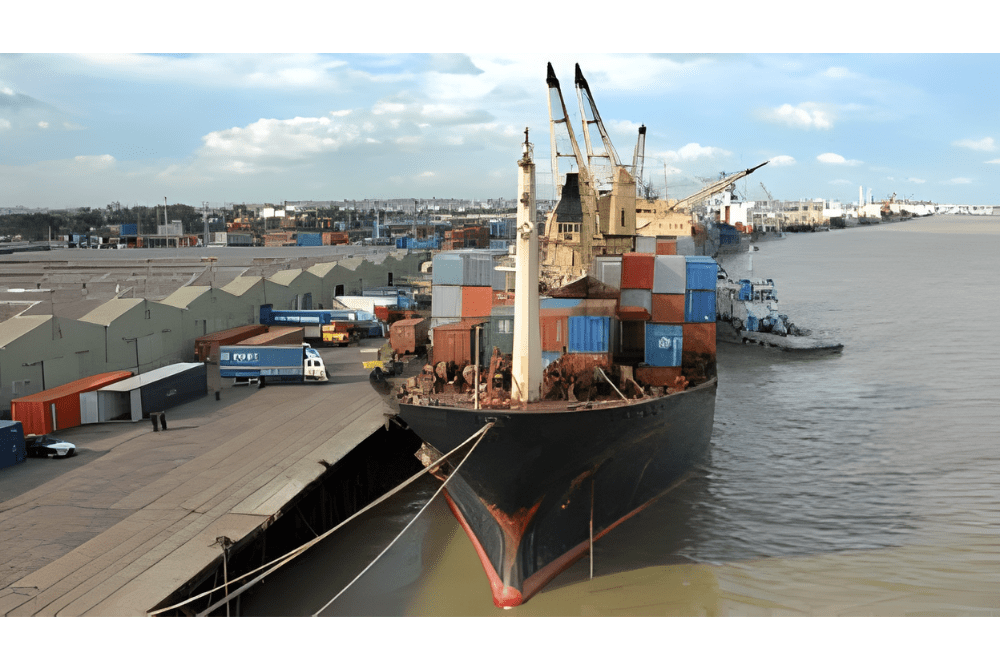Bangladesh has entered a new chapter in port management with two major agreements that transfer the operation of the Laldia Terminal in Chattogram and the Pangaon Inland Container Terminal near Dhaka to foreign operators. The deals were signed on seventeen November and mark the first time strategic container terminals of the country have been leased to overseas companies.
Danish giant AP Moller Maersk will invest five hundred fifty million dollars to design, build and operate the Laldia Container Terminal for thirty years. This is expected to be one of the largest European foreign direct investments in Bangladesh and one of the largest public private partnership projects in the country’s history. The Chittagong Port Authority said the project will boost handling capacity by about forty four percent and introduce global operational standards.
Read More: Bangladesh Surges Ahead of China in EU Apparel Export Growth with 13.17 Percent Rise
Swiss based MEDLOG will operate the Pangaon Terminal for twenty two years under an agreement won through open bidding. The company plans an initial investment of forty million dollars in the first four to five years, which may grow to four hundred million dollars in the long term. MEDLOG will also pay the government annual fees along with a charge for each container handled. The authority expects that the partnership will help Pangaon overcome years of operational losses.
The government says these agreements will improve trade efficiency, reduce bottlenecks and enhance Bangladesh’s competitiveness in regional logistics. Senior officials highlighted that attracting world class operators is essential for keeping pace with global shipping requirements and supporting the country’s export growth.
However, the Laldia agreement has triggered serious concerns among experts, port users and civil society representatives. They argue that the concession followed a non competitive process and did not disclose contract details, which they believe violates public procurement laws. They also say that such long term decisions should be made by an elected government, not an interim administration with only three months remaining before the national election.
Read More: Packaged Food Market Set to Hit 5.8 Billion Dollars by 2030 as Urban Demand and Exports Surge
Transparency International Bangladesh and several industry leaders called for a full explanation of the selection process, public disclosure of key terms and assurance that national interests and local employment have been protected. Stakeholders say that without consultation and clarity, even small oversights in such major agreements can create serious risks for the future.
Despite the debates, the two deals mark a significant shift in Bangladesh’s approach to port development, combining foreign investment, global expertise and long term operational partnerships. How these agreements are managed and communicated in the coming months will shape public trust and the country’s future in international trade.


